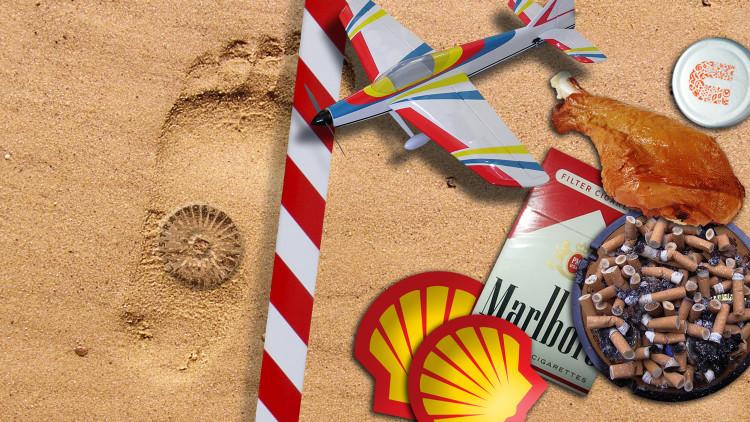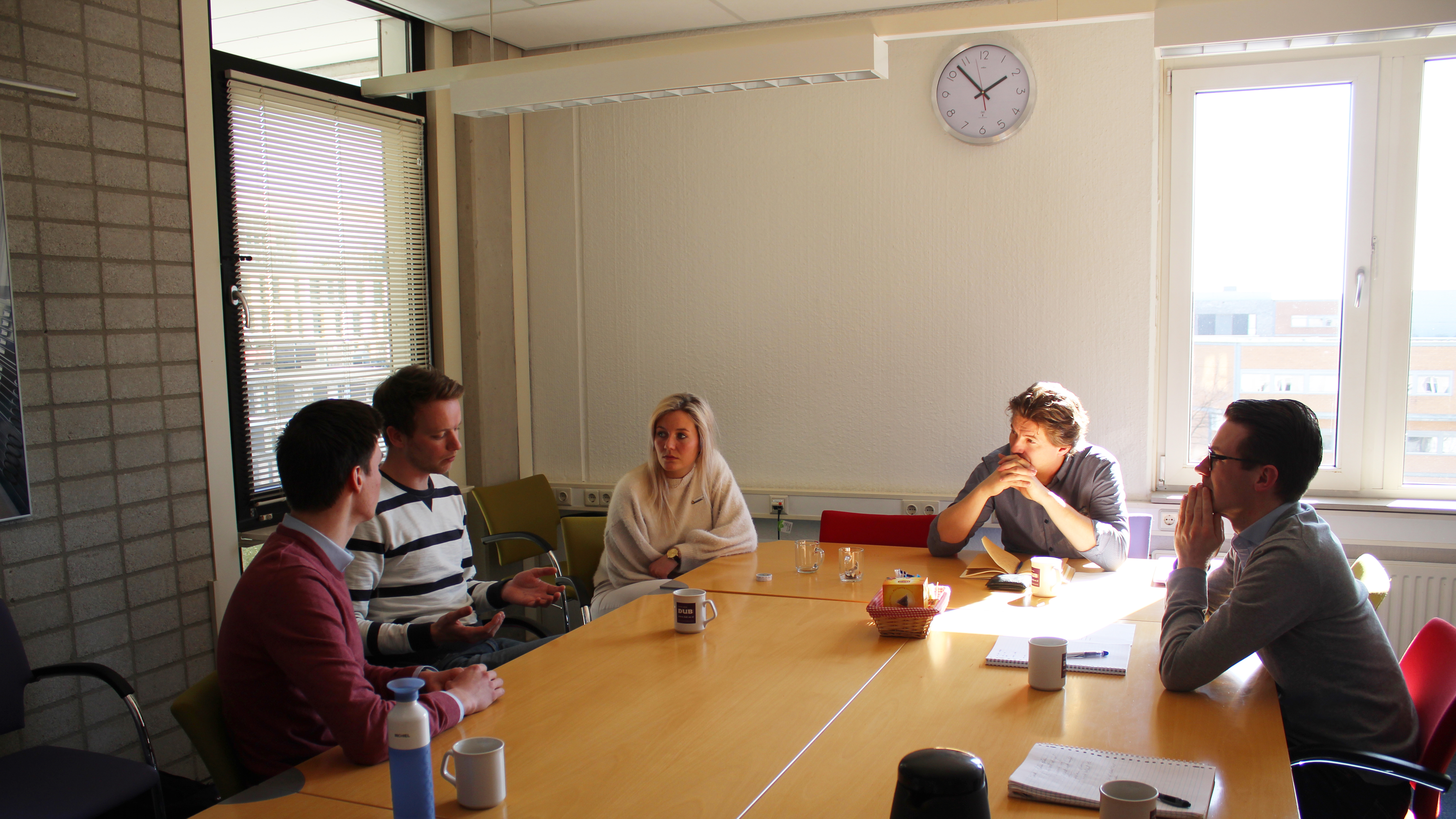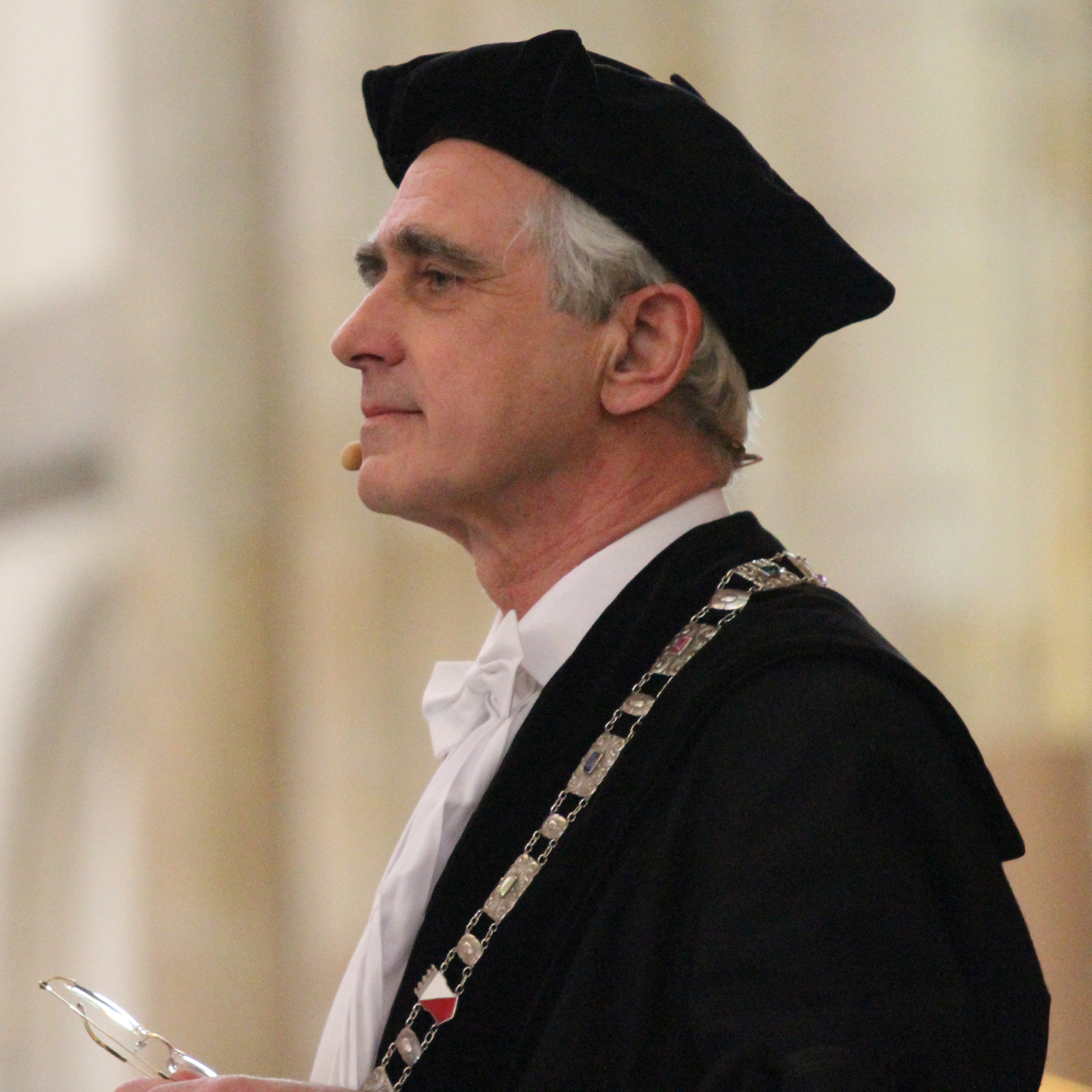Sustainable principles at the UU: where to draw the line?

Sustainability is a hot item at the UU, a university which has pledged to become carbon neutral by 2030. What helps is to stop serving meat at lunch, to save energy, and to fly less often for UU-related work. But to many students and teachers, these measures aren’t enough. UU partners should be sustainable, too. For this reason, Fossil Free presented over 600 signatures to the Executive Board last year, calling for the university to stop doing business with ABN Amro and to switch to a more sustainable bank. It led to a presentation by ABN Amro about how they are trying to be more sustainable.
Guest editor-in-chief Bert van der Zwaan suggested to involve active students and young scientists. DUB invited a number of students and PhD candidates who are mostly active in the discipline of sustainability. Teacher Mark Sanders, of the Sustainable Finance Lab, led the conversation. He had also been involved in the talks with ABN Amro and the bank’s search for alternatives.
Sanders came up with a few cases which we then presented to our participants.
 The participants:
The participants:
From left to right: Michiel van Veluwen, Ernst-Jan Kuiper, Emma Carpay, Mark Sanders and Oscar Kraan
Ernst-Jan Kuiper is PhD candidate Glaciology at Earth Sciences, and an active member of Fossil Free UU. Fossil Free is an international organization that wants organizations to distance themselves from fossil fuels. “Otherwise we’ll never make the 2017 Paris agreements”, he states. Fossil Free UU is mostly directed at the university. “You need to draw a line based on principles, and not collaborate with parties like Shell, ABN Amro and the ABP, who are constantly trying everything they can to keep those fossil fuels.”
Michiel van Veluwen is a student of Economics, a member of the Association of Reformed Students in Utrecht, and active at Milieudefensie (Environmental Defense). There, teams of students fight for sustainability, and organize specific campaigns addressing politics, for a greener future.
Emma Carpay is a recent graduate of the bachelor American Studies. This year, she’s a member of the University Council, and is in charge of Sustainability topics there. In the council, students aim to turn the UU’s ideas from the strategic plan – towards a fossil-free UU - into practice. What are you going to do if you say that that’s what you want? (in Dutch)
Oscar Kraan is PhD candidate at the Copernicus Institute of Sustainable Development at the UU, where he researches energy scenarios. He says he’s very aware of the climate issue: earlier, he wrote an article for DUB (in Dutch), calling out millennials on their unlimited flying. As a PhD student, however, he is fully financed by Shell.
Case 1: Collaboration with less sustainable parties, yes or no?
Should the university refuse to collaborate with companies that spend 99 percent of their investment in fossil fuel? Oscar: “In the past four years at Shell, I’ve become convinced that, aside from business logic, both external pressure from NGOs as well as internal influence from stockholders and customers is important whenever large-scale decisions need to be taken, for instance about leaving the North Pole projects. But in the end, Shell is an international company that has the duty to its stakeholders to turn a profit. If there are sufficient profitable alternatives for fossil fuel, they will take that step. My research is aimed at helping them with this, and I worked on a project that shows what a zero-emission world could look like.”
Ernst-Jan is clear. “Every investment Shell makes in fossil fuel, is bad for the environment, and works against the Paris agreements. The UU should not want to be a part of that. Especially when your strategic plan says you’re striving towards a sustainable, fossil fuel free world.”
Michiel agrees. “You run the risk that the company ends up just using the university. Even if the research has a sustainable topic, there’s the risk of the company using that little bit of info to make themselves look more favorable.”
Emma says that’s taking it too far. She says the UU should definitely make sure all the research meets its own criteria. But another task the university has is to solve issues in society. That might sometimes mean collaborating with companies that aren’t sustainable yet. She’s in favor of having all external research be tested by an ethics committee. “That committee can look whether the research fits the UU’s sustainable criteria. That way, the university can keep all research transparent. You can address why the external research is being done.”
Emma says that transparency is currently lacking. “The previous chairwoman of the board turned out to hold an external position at Statoil, a Norwegian oil company. As a student, I only found out about that much later. That isn’t right. You need to be transparent about these things.”
Case 2: Meat or no meat?
To test possible criteria, Mark Sanders presented a case. It touches the topic of how far the university can go to tell its employees and students what to do, and where the line is when talking about collaborations with companies that have a link to the bio-industry.
The rector once called for meatless cafeterias. That helps to reduce the UU’s footprint. Emma: “I’d say the meat can go. But I do foresee problems. We have deals with caterers. You need to make sure everything’s handled properly. It also troubles me that you’d be presenting your meatless cafeterias on the one hand, but on the other hand you’re supporting the faculty of Veterinary Science, which is, for a large part, based on the meat industry. That’s hypocritical.”
“Meat has a disproportionately high impact on the climate. And if you’re striving towards a sustainable world, it’s not a bad idea for a university to stop offering meat to students,” Michiel says. “That means the university’s leading by example.”
The question remains how paternalistic you should be. Oscar: “I think you should inform your adequately students and employees. Maybe even say ‘this product is harmful to the environment’, but don’t completely ban it. Let people make their own choices. That leads to people, and students especially, learning to reflect on their own behavior. That can turn out to have a huge influence on the decisions they’re going to make in the rest of their lives.”
What is paternalistic? The government prescribes us so many things, Ernst-Jan says. “People used to be allowed to smoke everywhere in these buildings. Nowadays it’s very normal to only smoke outside. Why not make some rules about selling meat?”
Case 3: How independent is a professor by special appointment who’s also employed by a corporation?
Michiel: “You should really look at it on a case-by-case basis and decide thusly. If a research project helps to make a company like Unilever more sustainable, then there’s nothing wrong with it. It’d be hard to decide at once for all of these cases.”
That’s why Emma wants more control and more transparency, including when and if you’re appointing, for example, a professor by special appointment. How independent is a research project if it’s also going through other channels and corporations? This is not just relevant for a professor by special appointment in the pharmaceutical industry or Unilever. Mark names the example of a professor by special appointment in social entrepreneurship, who’s being financed by Tony Chocolonely. “At every single activity, there’s chocolate bars everywhere. We didn’t know that professor was going to be appointed. How free is that professor’s position to for instance mention negative sides of Tony Chocolonely?”
Oscar: “Every professor needs to meet certain norms and requirements when appointed, right? As soon as you demand more control, you’re basically saying you don’t trust the independence of your professors.”
Emma: “The less information is available about the background, the more you start to distrust.”
Ernst-Jan would prefer to see a line be drawn. “You only have influence if you stick to your principles and draw a firm line. Threatening to leave ABN Amro made the bank nervous. That would’ve been such bad news for them.”
“It’s also difficult when you’re basically saying you need to stop 30 percent of your research.”
Emma: “You can still do contract-based research on sustainability. There’s a lot of demand for that.”
Here, Emma touches a point the other participants can agree on. At the moment, there’s still a gap between the UU’s research on sustainability and practice. Emma: “The UU should try to turn those studies into practice more often. If you’re doing a study on recycling water in toilets, try it out yourself! That’d be the UU actually showing it’s trying to become more sustainable. You’d be turning the UU into a sustainable testing ground, and you’d be transparent about what you’re doing and why.”
Case 4: Does the UU have the responsibility to make students more sustainable?
Should the UU turn down companies like Shell, Unilever or Rabobank at a corporate day if they’re not sustainable? The participants’ opinions vary. You can be principled and say that every company whose values don’t align with the UU isn’t welcome. On the other hand, there are legions of students who’d want to work at those companies. And the jobs will get filled regardless.
Oscar: “Wouldn’t it be of much greater importance to let your students reflect critically on themes like sustainability? Shouldn’t that just be a part of the curriculum?”
Emma: “The strategic plan says sustainability should be a part of education. That’s a good thing. Right now it still varies from program to program just how that’s done, but I think it’d be a good thing if the topic was introduced everywhere, even in, for example, Celtic Language & Culture.”
Mark wonders whether the attention to sustainability should be realized in the form of (additional) education. Would it even fit in the curriculum? Education often goes rather deep, whereas sustainability is a broad topic. He thinks the theme is more about academic education.
All participants think students are in fact interested in the future of our planet, and what they can do to help. Emma: “If the university can assist in students’ development in this area, those same students will later be able to add to a more sustainable world. That would be a beautiful way for the university to help make the world a little bit better.”
Motivation for the article
Bert van der Zwaan: “As a university board, you have to make decisions about who to  collaborate with, and who not to collaborate with. How principled are you going to be? It’s tricky to name criteria. As a university, we’re not collaborating with the weapons industry, but what to do in other cases? Recently, we ended a contract we had with a foundation linked to Philip Morris. But should we also stop accepting money from legal alcohol corporations or oil corporations to do relevant, free research? I wanted to hear the opinions of actively involved young people about this. The idea to turn the university into a testing ground sounds very interesting, even if the costs may sometimes make it less than feasible. I also like the idea that we’re educating socially responsible students.”
collaborate with, and who not to collaborate with. How principled are you going to be? It’s tricky to name criteria. As a university, we’re not collaborating with the weapons industry, but what to do in other cases? Recently, we ended a contract we had with a foundation linked to Philip Morris. But should we also stop accepting money from legal alcohol corporations or oil corporations to do relevant, free research? I wanted to hear the opinions of actively involved young people about this. The idea to turn the university into a testing ground sounds very interesting, even if the costs may sometimes make it less than feasible. I also like the idea that we’re educating socially responsible students.”
(Translation: Indra Spronk)